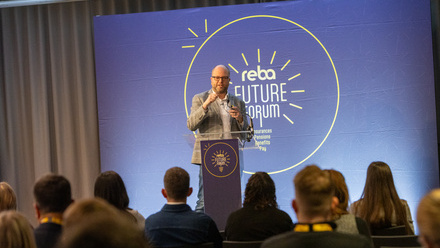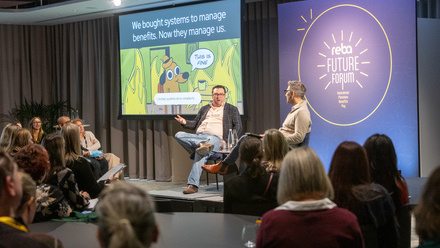Five ways fertility is affecting your workforce

Fertility support in the workplace is becoming more prevalent. 25% of workplaces are planning or considering offering enhanced benefits for fertility in the next two years.
“One in six couples will be affected by fertility issues. It pays to be the kind of company that offers support”, says Francesca Steyn, Peppy’s director of fertility services and chair of the Royal College of Nursing Fertility Nurses’ Forum.
Here are five ways fertility is impacting your people and your business.
1. Fertility and talent attraction
“To attract and retain the best talent, fertility support should be a core part of your company culture,” says Steyn. “Your staff want to work for an employer that is supportive of their life goals as well as their professional ones.”
The pandemic has exposed a lack of suitable health benefits and has led to the temporary closure of fertility clinics and delays in accessing fertility support. As we begin to return to normal, 33% of employees want their employer to prioritise health over lifestyle benefits.
Magic Circle law firm, Clifford Chance, is proving its support for employees’ future plans by recently becoming the first law firm in the UK to include fertility investigations and treatment in employees’ private medical insurance, following the popularity of specialist fertility support on the Peppy app.
2. Fertility and workplace wellbeing
Physical wellbeing: Fertility treatment can be gruelling, including self-injected hormonal treatments, scans, surgical egg collection and embryo transplant. Physical side effects can include swollen ovaries, PMT symptoms, migraines, cramping and bleeding.
Plus, one in 10 women have endometriosis, and one in five have PCOS (polycystic ovary syndrome) – both of which can have debilitating symptoms.
Mental wellbeing: “Fertility treatment is all-consuming, causing a lot of anxiety and depression. In fact, [figures from Fertility Network UK show] 90% of men and women struggling with their fertility experience feelings of depression and 42% have stated that they felt suicidal,” says Steyn.
Approximately 25% of pregnancies end in a miscarriage. “The miscarriage itself and the fear of miscarrying again can take a massive toll on mental health. HR policies should include a miscarriage policy too,” says Steyn.
Financial wellbeing: Today, standard IVF treatment costs between £4,000 and £8,000 per cycle, according to figures from the Human Fertilisation and Embryology Authority.
3. Fertility and productivity
“You can't concentrate if you’re going through fertility treatment, because you’re fretting about how you’re going to explain the next appointment to your boss or waiting to find out if the embryo transfer worked,” says Steyn.
85% of people feel fertility treatment has a negative impact on their work and 19% have to reduce hours or leave the workplace altogether. The average number of days’ absence taken per IVF cycle is 8.7 days.
The right support can make a huge difference – 96% of employees said they would feel more positive about their employer if they were offered specialist fertility support, following a pilot of Peppy Fertility support (2020).
4. Fertility and your LGBTQ+ community
In the past five years, the number of same-sex families has grown by over 50%. LGBTQ+ colleagues have a much higher chance of needing support when starting or growing a family, yet most LGBTQ+ people don't qualify for NHS funding for IVF.
“Conception often involves fertility treatments as well as donor sperm, donor eggs or surrogacy. It’s a huge journey in terms of mental and physical challenges, and it’s tricky to find the right information”, says Steyn.
Supporting your LGBTQ+ community is good for everyone – 72% of allies say they’re more likely to accept a job at a company that’s supportive of LGBTQ+ employees.
5. Fertility and men
40-50% of infertility issues are due to male-factor infertility. “It really takes a toll on men,” says Steyn. “They can become very withdrawn. They feel they can’t join in with the banter.”
“There can be self-esteem issues and shame,” says Steyn, and it’s these emotions that are often carried from home into the workplace.
This means fertility is not a women’s issue, it’s a workplace issue that can affect every demographic of your rising talent.
How to support employees’ fertility journey
With NHS wait times at a record high, there couldn’t be a better time for employers to step up and support their employees through their fertility journey – whatever stage they’re at.
“Think about updating or introducing a fertility policy, extending private medical insurance to cover fertility and offering your colleagues specialist help via a digital healthcare solution, like the Peppy app, so they can access support even while they’re working remotely,” says Steyn.
“Make sure your policies and your work environment are inclusive, and that you’re signposting the organisations that can help.”
This article is provided by Peppy.
Supplied by REBA Associate Member, Peppy
Peppy is a global app-based employee benefit giving employees access to expert clinical care in menopause, fertility, pregnancy, and more - trusted by 250+ companies and reaching over 3 million people.







